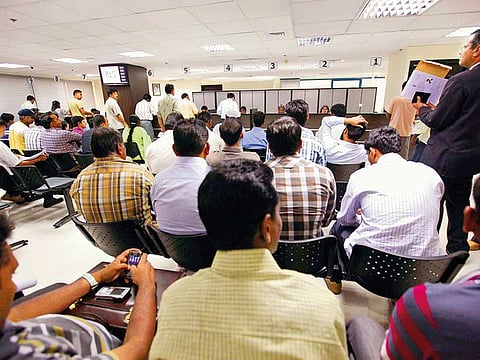Indian missions issue good conduct certificate for visitors with job offers
Stopgap arrangement to avoid visiting Indians with job offers going back home for police clearance

Dubai: The Indian missions in the UAE have started issuing Good Conduct Certificate to visit visa holders who have received job offers here, Gulf News has learnt.
The certificate issued by the missions is referred to as the Police Clearance Certificate (PCC) which is currently accepted by the UAE authorities as the requirement for an employment visa from February 4.
The missions have made a “stopgap arrangement” to accept PCC applications from job seekers holding visit visas to meet the requirement of Good Conduct Certificate for UAE employment visas, Vipul, Consul-General of India in Dubai, told Gulf News.
Earlier, Indians who are on visit visa in the UAE had to either go back home or authorise someone on their behalf to process the PCC from India even if they had job offers here.
Explaining the change in stand, Vipul said the Indian officials decided to ease the burden on Indian nationals though the missions do not encourage Indians to come on visit visas to look for jobs.
“This is purely a stopgap arrangement. Till the time things become completely clear on the GCC issue, we are trying to give PCC to those who have come to the UAE and have got an employment offer here.”
It is compulsory for the applicants seeking the PCC to provide the offer letter attested from the Chamber of Commerce in the emirate where the company is located and a copy of the trade licence of the employer.
“This is to make sure that they are not bringing any fake job offers,” the diplomat said.
The Indian missions are accepting the PCC applications through BLS International, the private agency outsourced for processing passport and visa services.
Another official handling the matter said the PCC is issued based on the data from Regional Passport Offices (RPOs) on the police clearance done at the time of issuing the passports.
The database of RPOs also reflects any adverse information that would render the applicants ineligible for overseas travel as and when law enforcement agencies intimate this to the passport authority. Alerts are automatically issued to Indian immigration authorities separately.
“It is only when the data is not available in our system [due to unspecified reasons] that we send the request again through the RPO concerned to get the clearance from the local police at the applicant’s address,” the official clarified.



